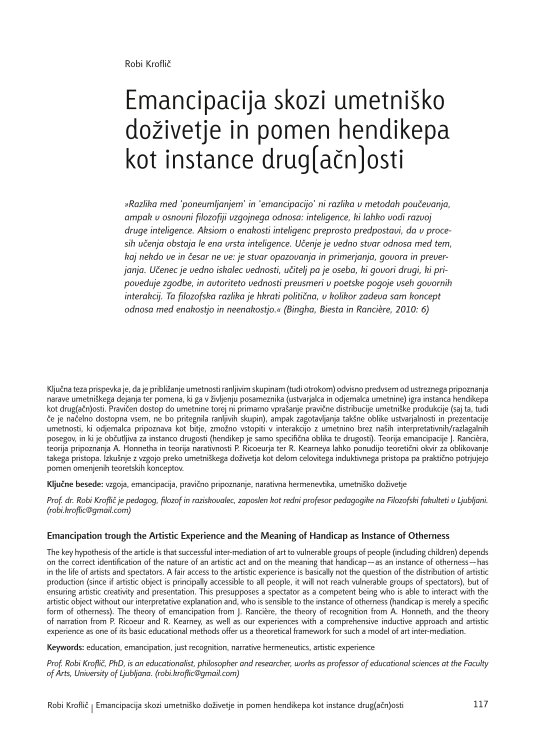The key hypothesis of the article is that successful inter-mediation of art to vulnerable groups of people (including children) depends on the correct identification of the nature of an artistic act and on the meaning that handicap—as an instance of otherness—has in the life of artists and spectators. A fair access to the artistic experience is basically not the question of the distribution of artistic production (since if artistic object is principally accessible to all people, it will not reach vulnerable groups of spectators), but of ensuring artistic creativity and presentation. This presupposes a spectator as a competent being who is able to interact with the artistic object without our interpretative explanation and, who is sensible to the instance of otherness (handicap is merely a specific form of otherness). The theory of emancipation from J. Rancière, the theory of recognition from A. Honneth, and the theory of narration from P. Ricoeur and R. Kearney, as well as our experiences with a comprehensive inductive approach and artistic experience as one of its basic educational methods offer us a theoretical framework for such a model of art inter-mediation.




